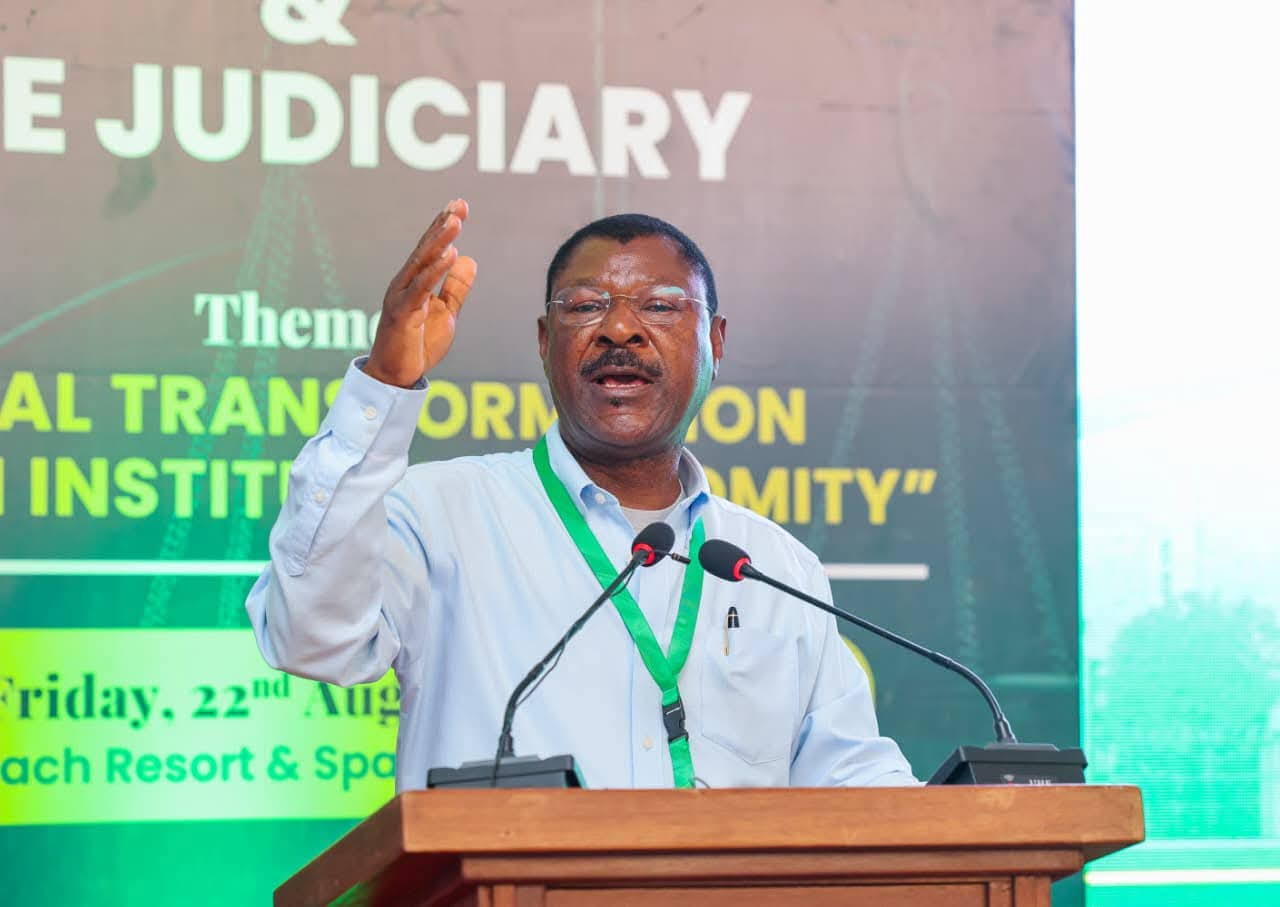 National Assembly Speaker Rt. Hon. (Dr.) Moses Wetang’ula Speaking during a joint session between the National Assembly leadership and the Judiciary at the Third Leadership Retreat. Photo PBU
National Assembly Speaker Rt. Hon. (Dr.) Moses Wetang’ula Speaking during a joint session between the National Assembly leadership and the Judiciary at the Third Leadership Retreat. Photo PBU
By Andrew Mbuva
National Assembly Speaker Rt. Hon. (Dr.) Moses Wetang’ula has raised concern over the frequent issuance of conservatory orders against the National Assembly, warning that the trend risks stalling the legislative process.
Speaking during a joint session between the National Assembly leadership and the Judiciary at the Third Leadership Retreat, Wetang’ula noted that several critical matters before House Committees have been suspended due to such orders.
“This is a matter that needs to be addressed by the Judiciary urgently,” he said, lamenting that some hearings are postponed for up to six months, adversely affecting lawmaking.
The retreat, attended by Chief Justice Martha Koome and senior Judiciary officials, provided a platform for candid dialogue between the two arms of government.
Wetang’ula urged the Judiciary to centralize cases filed against Parliament in Nairobi, where the institution is based, to cut costs and ensure effective legal representation.
“Currently, our lawyers are forced to travel to upcountry courts, only to find magistrates on leave or transferred along with files,” he explained.
On the question of Judiciary funding, Wetang’ula pledged Parliament’s support to enhance its budget, acknowledging the legitimacy of its requests. Chief Justice Koome had earlier revealed that the Judiciary plans to establish magistrates’ courts in all 290 constituencies but currently operates only 143, a shortfall attributed to underfunding.
“The Judiciary requires enhanced allocations for infrastructure development. This will ensure equitable access to justice across the country,” Koome appealed.
She stressed that collaboration between the Judiciary and Legislature should not be mistaken for interference, adding that dialogue would help avoid adversarial relations.
“Institutional comity does not erode independence. There is a difference between institutional independence and decisional independence. While institutions may engage, decisional independence remains sacrosanct,” she affirmed.
National Assembly Clerk Samuel Njoroge also called for knowledge-sharing through stronger linkages between the Centre for Parliamentary Studies and Training and the Kenya Judiciary Academy.
The retreat, themed “Social Transformation through Institutional Comity,” focused on building consensus on shared priorities, fiscal planning for the 2025/26 financial year, and strengthening cooperation between Parliament and the Judiciary.